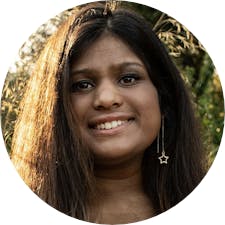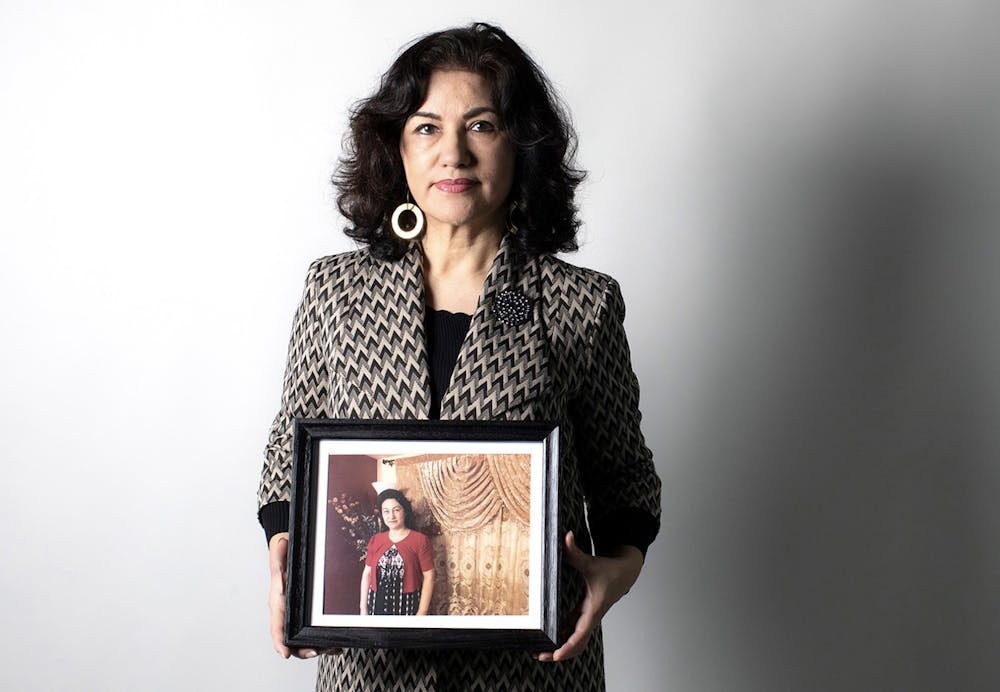Activist Rushan Abbas spoke to the Duke community about the genocide of Uyghur Muslims in China and the subsequent international silence on Tuesday.
The talk, part of the Witness to Guantanamo exhibit, was hosted by the Power Plant Gallery at Duke’s American Tobacco Campus. Abbas also spoke to several University leaders during her visit, including President Vincent Price. She spoke with The Chronicle on Monday about her backstory, mission and how she sees that Duke students can spread awareness about the Uyghur genocide.
A leading voice for the Uyghurs, Abbas started advocating while she attended Xinjiang University and Washington State University. Abbas’ switch to full-time activism followed a talk she gave at the Hudson Institute Think Tank in Washington, D.C. in 2018. Six days after her speech, her sister, Gulshan Abbas, was abducted in retaliation.
Today, Abbas is the founder and executive director of the nonprofit Campaign for Uyghurs, advocating for her sister’s release and the freedom of millions of other Uyghurs. Her activism is focused on raising awareness, educating the public and engaging civil societies and grassroots organizations to create a mass movement against the genocide.
“I want to try to educate the public that what the Chinese government is doing is not just the genocide against the Uyghur people, but it's also about the freedom and democracy that they're waging war against,” Abbas said.
Abbas began her years as a youth activist co-organizing pro-democracy protests in the 1980s.
“At that time, activism was dangerous,” she said. “That's why my father sent me out [of Turkistan in 1989] actually, because he was worried for my safety.”
Now, she describes her advocacy work as being “at the cost of my own sister’s freedom.”
“[Gulshan’s] only crime is being my sister and being Uyghur, so when I travel around the world and work seven days a week, almost around the clock, non-stop doubling and tripling my efforts, it's because of the love I have for my sister,” Abbas said.
Abbas also expressed concerns about Duke’s ties with China via Duke Kunshan University, located near Shanghai, in Suzhou, China. With China’s increasingly autocratic leadership and the University’s need to maintain a relationship with the government to allow students to attend DKU, Abbas expressed fear that academic freedom might be limited.
“Self-censorship from some of the faculty or the president, eventually, I'm sure will happen if they want to continue having a campus there, and it's really saddening that such a prestigious university like Duke is going to continue having a relationship while academic freedom is zero,” Abbas said.
DKU is an “independent joint venture university that is governed by an agreement that establishes academic freedom and open internet access for students and faculty on campus,” wrote Michael Schoenfeld, vice president for public affairs and government relations, in an email. He added that these principles are “monitored closely” by DKU and Duke and that the universities “will not hesitate to take action if those core tenets of our academic mission are constrained.”
Abbas told The Chronicle that she would ask Price for a photo when she met with him.
“If he refuses, you know what that means? He doesn't want to make somebody upset. So let's see if he has the independent mind to act boldly. Or is he going to already start self-censorship because he has a partner in China?” Abbas explained.
Schoenfeld wrote that Price, Provost Sally Kornbluth and Trinity Dean Valerie Ashby met with Abbas on Tuesday. Price participated in a photo with Abbas, “as he does with many visitors to the campus,” according to Schoenfeld.
Abbas hopes her talk will empower Duke students and the surrounding community to take action on important human rights issues.
“This is not just something happening on the other side of the world having nothing to do with us,” Abbas said. “I want [the Duke community] to realize that this is everybody's responsibility. This is not just the Uyghur’s issue, or Muslims issue, this is a humanity issue. Anyone with a heart should take action to stop it.”
Abbas said that there are several options for Duke students who want to help spread awareness of the genocide. She called for students to “be vocal as much as they can” through social media, chapter groups, petitioning the Biden administration to take action and calling on corporate America to “stop being complicit and financing the genocide.”
In the end, change only happens with widespread movement, according to Abbas.
“Take action, because this is our last call,” Abbas said. “When it comes down to it, don’t just do it to Uyghurs, but do it to help yourself and help this country, because it's not just the Uyghurs’ future at stake here. The freedom and democracy in this country is at stake.”
Get The Chronicle straight to your inbox
Signup for our weekly newsletter. Cancel at any time.

Ishani Raha is a Pratt junior and a senior editor of The Chronicle's 119th volume.

